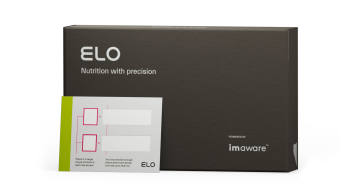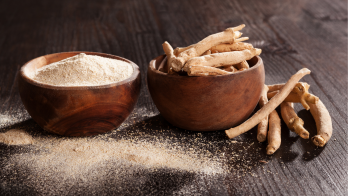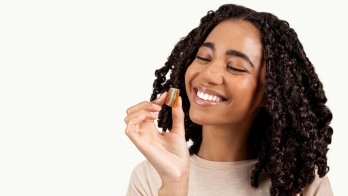Elo’s third-party testing process
Elo’s rigorous third-party testing process is an anomaly in the industry. While supplement regulations are often murky, Elo has established a system to ensure that our products are the best in class. Here is how Elo’s third-party testing process works.
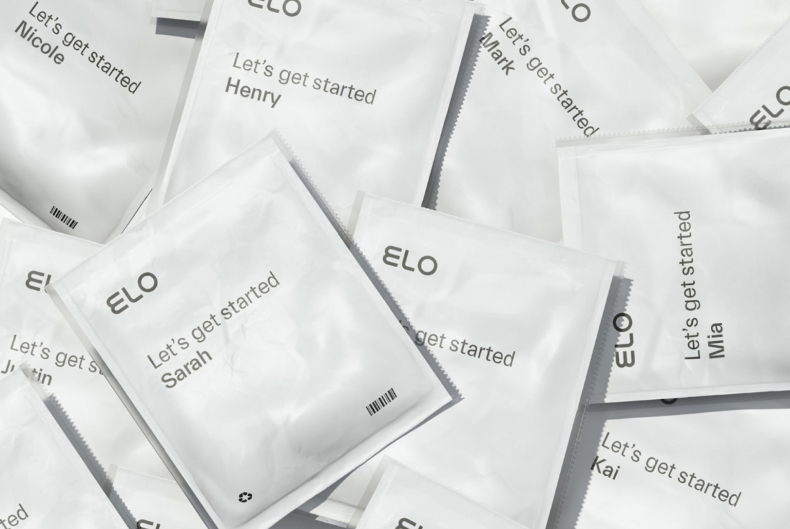
Contents
What is third party testing? Supplement regulations Why quality matters Finding third party lab partners Elo’s testing guidelines What happens if a product doesn’t pass? Why should Elo members trust this process? How quality testing fits into the bigger picture - nutrition with precision Summary Key takeawaysSupplements are a notoriously murky, unregulated market where companies don’t have to demonstrate their products are safe before being sold to the public. Unfortunately, what you see on the label isn’t always what you get. Third party testing can be used to determine the quality and safety of products and provides unbiased information.
At Elo, we have a rigorous third-party process in place to ensure that we deliver safe and effective products of the highest quality.
Before we dive into our third-party process at Elo, let’s start by defining what third party testing is and why this is especially important for supplements and protein powders.
What is third party testing?
Third party testing involves tests performed by accredited labs to ensure that a product meets quality and safety standards. It also verifies that the product in question complies with mandates set forth by regulatory agencies such as the Food and Drug Administration (FDA) and the Consumer Product Safety Commission (CPSC). Third party testing companies are unbiased, independent organizations that have been accredited by the International Standard Organization (ISO). These companies are used to confirm that the label is accurate, test for common contaminants (such as heavy metals, pesticides, and mold), ensure that a product breaks down properly so that its ingredients will be digested, and check that the label contains any necessary warnings for potentially unsafe ingredients. Testing companies also ensure that the product is manufactured in accordance with US regulations, and that all ingredients used meet the definition of a dietary ingredient.
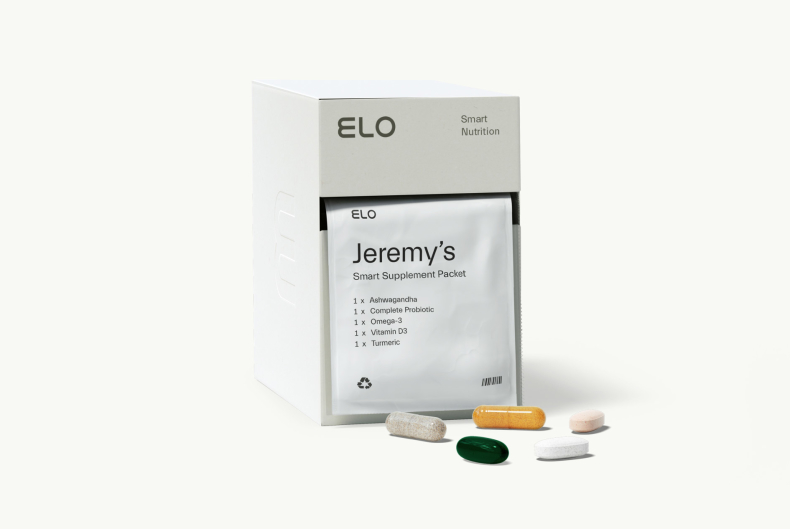
Supplement regulations
Supplements are regulated in a “post-market” fashion, meaning they are not approved by a regulatory organization before being sold to consumers unless the product contains a new ingredient. Third-party testing can help improve the safety and efficacy of products and is especially critical for athletes who need to adhere to anti-doping rules, as well as people on medications.
Dietary supplements that are not third-party tested may contain WADA prohibited performance-enhancing substances that can show up in drug tests.
Supplement companies are required to test the identity and quality of ingredients included in their products. This process is regulated by the Food and Drug Administration; however, supplement manufacturers do not have to demonstrate that their products are safe before they are sold. Supplements and protein powders that have been third party tested often have a certification stamp on their label from the certification company.
If you see a stamp of certification on the product you are considering, you can be sure that it has been third party tested.
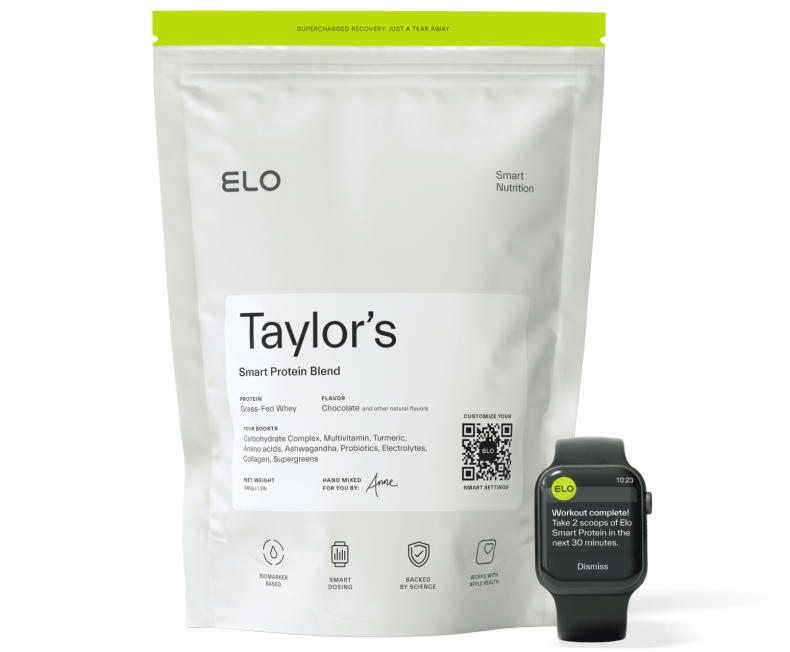
Why quality matters
Not all supplements and protein powders are created equal. Many manufacturers increase margins by cutting corners on quality, and since supply chains are complex (with many middlemen involved), it can be difficult to understand the production and quality of raw ingredients. Therefore, this results in supplement products that don’t stand up to their claims and provides little value for consumers.
This is why Elo is different. Edwina Clark, MS, RD, CSSD, Elo’s Marketing Director, is proud of the dedication to quality because this means we care about our members. Because we want our members to only take what they need and get results from the products we recommend, this requires rigorous quality testing.
Elo has established a quality testing program that enforces missing systematic regulation of recommended products. This includes finding the best third party lab partners, establishing general testing guidelines, and having a detailed third party testing process.
Finding third party lab partners
Third party lab partners help ensure the best products possible, but it’s important to find one that meets all of the requirements. From accreditation to location, there is a lot to consider. So, how does Elo find one that is the best fit? Pasha Gurevich, Elo’s Product Director, says that Elo requires lab partners to be FDA-registered and ISO/IEC 17025 accredited. In addition, they must be able to test a wide variety of nutrients using industry-established analytical techniques. Location is also an important factor. We look for labs that are as close as possible to Elo HQ so our products don’t spend too much time in transit and exposed to the elements.
Elo’s testing guidelines
To ensure each product is safe and accurate, we ask a series of questions, including:
Does claimed active ingredient content match its label claim?
For an oil-based omega-3 product, is the oil within specification for oxidation/rancidity?
Is the product free of heavy metal contamination?
Is the product free of harmful microorganisms?
Additionally, every product undergoes label accuracy and purity testing to determine the following:
Actual active ingredient content. For herbal components (barks, roots, or extracts), identity testing (HPTLC) and quantification of primary active ingredients is performed. Vitamins (HPLC, LC-MS/MS), minerals (ICP-MS), and blends are broken down into individual components.
Heavy metal contamination. A standard panel includes analyses for lead, cadmium, arsenic, and mercury.
Presence of microorganisms. A standard panel includes analyses for Total Plate Count, Yeast/Mold, Coliforms, E. Coli, Pseudomonas, S. Aureus, Salmonella/Shigella.
Measure of oil rancidity. This is typically captured by measuring primary oxidation (Peroxide Value) and secondary oxidation (p-Anisidine Value) and calculating TOTOX, a metric indicating total oxidation.
All testing is only valid for the product batch or lot tested. If a product passes testing, the batch is considered safe and accurate for a period of 12 months unless otherwise noted, or until we are informed that a new batch is issued. Once the supplements complete third party testing, a Certificate of Analysis (CoA) or specification document describing active ingredient content, heavy metal content, and microbiological contamination is issued to confirm quality.
What happens if a product doesn’t pass?
There are a variety of reasons a product can fail testing — these include laboratory error, shipping and handling mismanagement, discrepancies in dosage claims, issues with ingredient purity, and contaminations. If a product fails testing — for either active ingredient content, heavy metal contamination, or presence of microorganism — we initiate an internal investigation with our partners to better understand the discrepancy. The product is pulled from circulation until a new batch is issued or replaced with a higher quality product.
Why should Elo members trust this process?
Third-party testing means members can trust that Elo products are safe, composed of the highest quality ingredients and optimized for outcomes.
Everything Elo does is geared towards helping people improve their health and underpinned by science.
Our supplement recommendation engine is built on a proprietary analysis of over 3,500+ peer-reviewed human clinical studies, and third party testing is another way to demonstrate that we backed by science and focused on results.

How quality testing fits into the bigger picture - nutrition with precision
At Elo, quality testing is an important part of our broader vision - nutrition with precision. We can’t deliver nutrition with precision unless we have the right ingredients, at the right dosage for our members. Zuzana Krejciova-Rajaniemi, PhD, Elo’s science director, remarks that Elo is currently building one of the world’s most powerful personalized nutrition platforms, based on cutting edge science. Using a combination of biomarker data, wearables and questionnaires, we can intelligently forecast the right nutrition recommendations for you and only you, and having the right products, in the right form, at the right dose is essential.
At Elo, we have carefully established each nutrient dose and time-frame at which level research and human clinical trials have shown health-promoting benefits. According to Krejciova-Rajaniemi, these nutrient doses are unique to Elo, and are constantly updated as the research evolves.
Summary
Unlike other companies selling supplements and protein powders, Elo has established a quality program to ensure the highest quality products possible. From rigorous testing and evaluating lab partners, to gathering scientific research and establishing general testing guidelines, every step of the Elo product is geared towards providing the best nutrition recommendations uniquely for you. At Elo, we’re focused on getting our members outcomes, and quality testing is just another way we’re fulfilling our promise - nutrition with precision.
Key takeaways
Third party testing is used to determine the quality and safety of products, which is why Elo is an anomaly in the industry.
Since quality assurance is a main factor for customer trust, Elo is adamant about putting their members first. As such, Elo has a rigorous third party product testing process in place, and has strict requirements when finding lab partners.
Elo wants their members to only take what they need and get results from the products that we recommend.
Because Elo’s success hinges on the outcomes delivered to consumers, we refuse to blindly trust products issued to a growing community.

